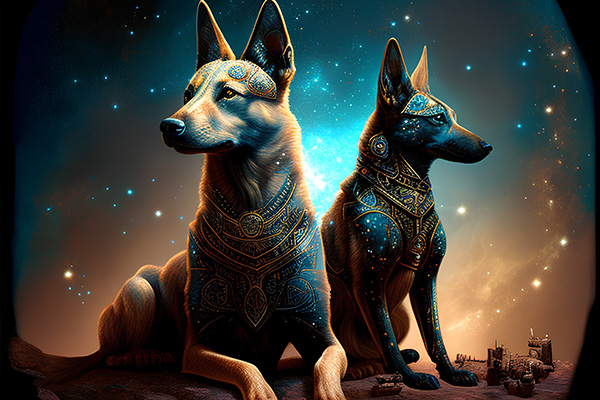hinduism
The Compassion Of Tough Love
 We have an amazing tool within us: our heart. Not only does it keep us alive, but it also allows us to feel deep emotions, such as love and resentment, joy and sadness, achievement and loss, compassion and apathy.
We have an amazing tool within us: our heart. Not only does it keep us alive, but it also allows us to feel deep emotions, such as love and resentment, joy and sadness, achievement and loss, compassion and apathy.
Many people fail to see the power of the heart and what we as humans can do with that power for ourselves and others. The heart is in fact key to our personal and spiritual learning and our soul expansion in this lifetime.
However, many of us who strive to contribute to a better world with the power of our loving hearts have also seen that giving material things, like money, and trying to help those who refuse to help themselves, does not cure the suffering in the world. It usually only puts a band aid on the underlying problems and in time it just returns as additional problems.
We all have our own karmic lessons, and if not learned it becomes a recurring issue until we finally learn to fix it, learn from it, and move forward. Then it is no more a lesson, but a wisdom.
It is also true that we can get in the way of others learning their lessons. Sometimes we jump in too quickly or end up taking on their burden, only to find it happening again and again. Then all our efforts and sacrifice were in vain.
The True Meaning Of Holiday Gifts
 While wrapping Christmas gifts for family and friends today, I thought about whether it is better to be on the giving or receiving end of presents during the holiday season?
While wrapping Christmas gifts for family and friends today, I thought about whether it is better to be on the giving or receiving end of presents during the holiday season?
In my childhood, receiving presents was undoubtedly the best! But my parents also taught me the importance of giving. They gave my sister and me a small allowance during the holidays to buy gifts for others. It was fun to shop for small items to give to our loved ones. With much anticipation, wetried to pick things that people would actually like and appreciate.
I therefore learned early on that while receiving gifts can be exciting and fun, giving them can be even more rewarding.
My parents were certainly on to something, because the value of giving has been scientifically proven to be more than just a sweet sentiment. For example, according to a study by the American Psychological Association, giving to others increases life expectancy by at least five years! Another study found that people who give to others experience lower blood pressure, less depression, and lower stress levels. In addition, giving to others can increase happiness and well-being. A Harvard Business School study found that giving money to someone else increased participants’ happiness more than spending it on themselves.
Navigating Loneliness During the Holidays
 The holiday season is traditionally portrayed as a time of togetherness, love, joy, and belonging. We are inundated with media images of families gathered around a festive table, friends celebrating, and communities coming together.
The holiday season is traditionally portrayed as a time of togetherness, love, joy, and belonging. We are inundated with media images of families gathered around a festive table, friends celebrating, and communities coming together.
Paradoxically, for many people, this time of year is instead filled with feelings of loneliness, isolation and disconnection.
The root cause is the societal stereotype and cultural assumption that everyone should be joyful, happy, and surrounded by loved ones during the holidays. If you’re not, for whatever reason, it can lead to feelings of inadequacy, isolation, and social failure.
Holiday loneliness is exacerbated by the stark contrast between our actual circumstances and the commercially driven, idealized versions of holiday gatherings and celebrations we see in advertisements, television shows, movies, and social media. This increases feelings of disconnection, low self-esteem, and even depression.
Loneliness during the holidays can have a significant impact on mental health. Feelings of isolation and disconnection during this time of year can exacerbate existing mental health issues and lead to the development of new ones. The constant reminders of togetherness and joy, combined with a lack of social connections and meaningful interactions, can increase feelings of loneliness, leading to emotional distress, feelings of emptiness and hopelessness, and a decline in overall well-being.
The Powerful Practice Of Color-Based Affirmation
 Affirmations are known to be a powerful spiritual practice for manifestation, self-healing, and personal empowerment.
Affirmations are known to be a powerful spiritual practice for manifestation, self-healing, and personal empowerment.
What is less well known is that associating your affirmations or intentions with specific colors can greatly enhance your practice by infusing it with the powerful symbolism, purposeful energy frequencies, and mind-altering psychoactive effects of different colors. It aligns our energy vibration more powerfully with the desired effect or outcome.
The practice of color-based affirmation, also known as ‘color therapy affirmations’ or ‘rainbow affirmations,’ draws inspiration from a variety of traditions and disciplines, including spirituality, metaphysics, chromotherapy, and color psychology.
Color has a rich history of symbolic significance that spans all cultures and many centuries.
Ancient civilizations recognized both the metaphysical and therapeutic power of color, while many religions and spiritual wisdom traditions have an intricate tapestry of color symbolism in their teachings and practices. The ancient Egyptians, for example, recognized the healing power of color. They had a sophisticated understanding of color that they used in their temples and rituals.
Comparison Poisons The Heart, Mind And Soul
 When we are going through difficult times, we tend to compare our struggles and suffering to the lives of others and measure ourselves by their perceived happiness, joy and success.
When we are going through difficult times, we tend to compare our struggles and suffering to the lives of others and measure ourselves by their perceived happiness, joy and success.
We often do this these days by comparing our own lives to what others post on social media. Then we judge and mentally torture ourselves for not living up to other people’s highlight reels of happiness and good fortune.
Sure, it is sometimes beneficial to self-reflect and strive for more based on the examples of others who serve as our role models. However, when we indiscriminately compare our own life journey to everyone else’s, we end up diminishing our own uniqueness and value.
While social comparison can motivate us to improve and grow, it can also lead to toxic self-judgment, envy, resentment, and extreme unhappiness. Constantly focusing on the highlights of other people’s lives quickly becomes toxic and self-destructive.
However, this tendency is not a character flaw in some of us. In fact, it is a natural evolutionary instinct that we all have. Our ancestors survived by living in social groups. Our tendency to compare ourselves to others is therefore a very common human trait, rooted in our evolution as a species.
The Mythical Legacy Of Dogs
 The cat isn’t the only pet with a long history of myth and legend. Dogs have played an important role in human culture and spirituality for centuries.
The cat isn’t the only pet with a long history of myth and legend. Dogs have played an important role in human culture and spirituality for centuries.
The dog, or “man’s best friend,” is the subject of many magical tales, wisdom traditions, and folklore throughout the world. Like the cat, dogs were companions of the ancients and are still considered symbols of loyalty, courage and protection.
In Greek mythology, dogs are associated with the goddess Hecate, who is also known as the “dog goddess.” She is the goddess of witchcraft, magic, and the crossroads, and is typically depicted in ancient Greek art with a pack of dogs at her side.
Today, the brightest star in the night sky, Sirius, is also known as the Dog Star, because it is traditionally seen as the protector of the night sky. In many cultures, Sirius has been associated with dogs because of its brightness and prominence.
Perhaps the most famous dog in Greek mythology is Cerberus, the three-headed guardian of the underworld. Cerberus not only prevented the dead from leaving the underworld, but also the living from entering it. He was finally captured by the hero Heracles in one of his twelve labors. Another famous Greek dog is Laelaps, a swift dog given by the god Zeus to the hunter Actaeon. Laelaps was so fast that he could catch any prey, but he was also cursed to always catch his prey.
The Spiritual Symbolism Of The Circle
 The circle has a profound and universal meaning in spirituality across cultures and belief systems. It symbolizes a variety of spiritual concepts and offers insights into the interconnectedness of life, the cyclical nature of existence, and the infinite potential for growth and transformation.
The circle has a profound and universal meaning in spirituality across cultures and belief systems. It symbolizes a variety of spiritual concepts and offers insights into the interconnectedness of life, the cyclical nature of existence, and the infinite potential for growth and transformation.
The circle represents unity and oneness. It is a symbol of completeness because it has neither beginning nor end. This circular continuity reflects the eternal nature of the soul and the interconnectedness of all living beings.
In Native American spirituality, for example, the medicine wheel represents balance and harmony between all aspects of life, including the physical, emotional, mental, and spiritual. Similarly, in Hinduism, the concept of samsara refers to the continuous cycle of birth, death and rebirth, with the circle symbolizing the eternal journey of the soul.
In Christianity the circle represents eternity and sacred union. It is referenced in the Bible as the shape of heaven, and as the beginning and ending of time. For Christian couples, the unending circle of a wedding ring is also the symbolic expression of their sacred, eternal union.